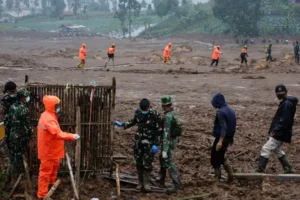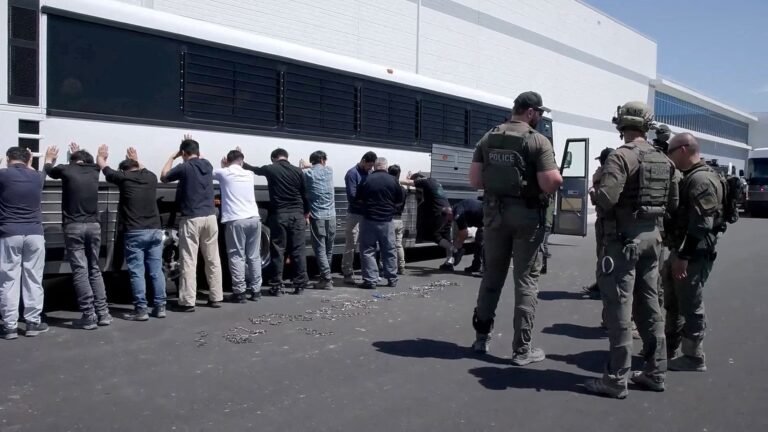Nearly 300 South Korean workers detained during a large-scale US immigration raid at a Hyundai Motor and LG Energy Solution battery project in Georgia returned home on Friday, September 12.
The workers, many wearing face masks, disembarked a chartered flight at Incheon International Airport, where they were greeted by relatives, company representatives, and senior officials including the presidential chief of staff. Their return followed a week of tense negotiations between Seoul and Washington.
The raid, which also swept up 10 Chinese nationals, three Japanese workers, and one Indonesian, shocked South Korea, a key US ally, and drew widespread outrage after images of workers in handcuffs and shackles circulated online.
South Korea’s foreign minister Cho Hyun, who visited Washington this week, said Seoul and Washington are now exploring the creation of a new visa category tailored to Korean specialists working on long-term projects in the United States. The workers had been employed by LG Energy Solution and its subcontractors at the Georgia site, which is part of a multibillion-dollar partnership with Hyundai to boost EV battery production.
President Lee Jae Myung warned on Thursday that the raid could discourage South Korean firms from investing in the United States, despite President Donald Trump’s push for greater foreign investment in US manufacturing. “This incident could make Korean companies hesitant at a critical time,” Lee said.
The controversy comes as both governments work to finalize a trade agreement that includes a $350 billion investment fund to support US strategic industries.
At Incheon airport, frustration was visible. One protester unfurled a poster showing US President Trump in a mock ICE uniform, carrying a machine gun and a bag of dollar bills, alongside the caption: “We’re friends!”
While Washington has vowed to conduct more raids on companies employing undocumented or improperly visaed workers, Seoul is pressing for assurances that its skilled workforce will not face similar treatment in the future.
For now, the return of the workers has provided some relief, but the incident has left a diplomatic scar at a time when the US and South Korea are seeking closer cooperation in energy and trade.







